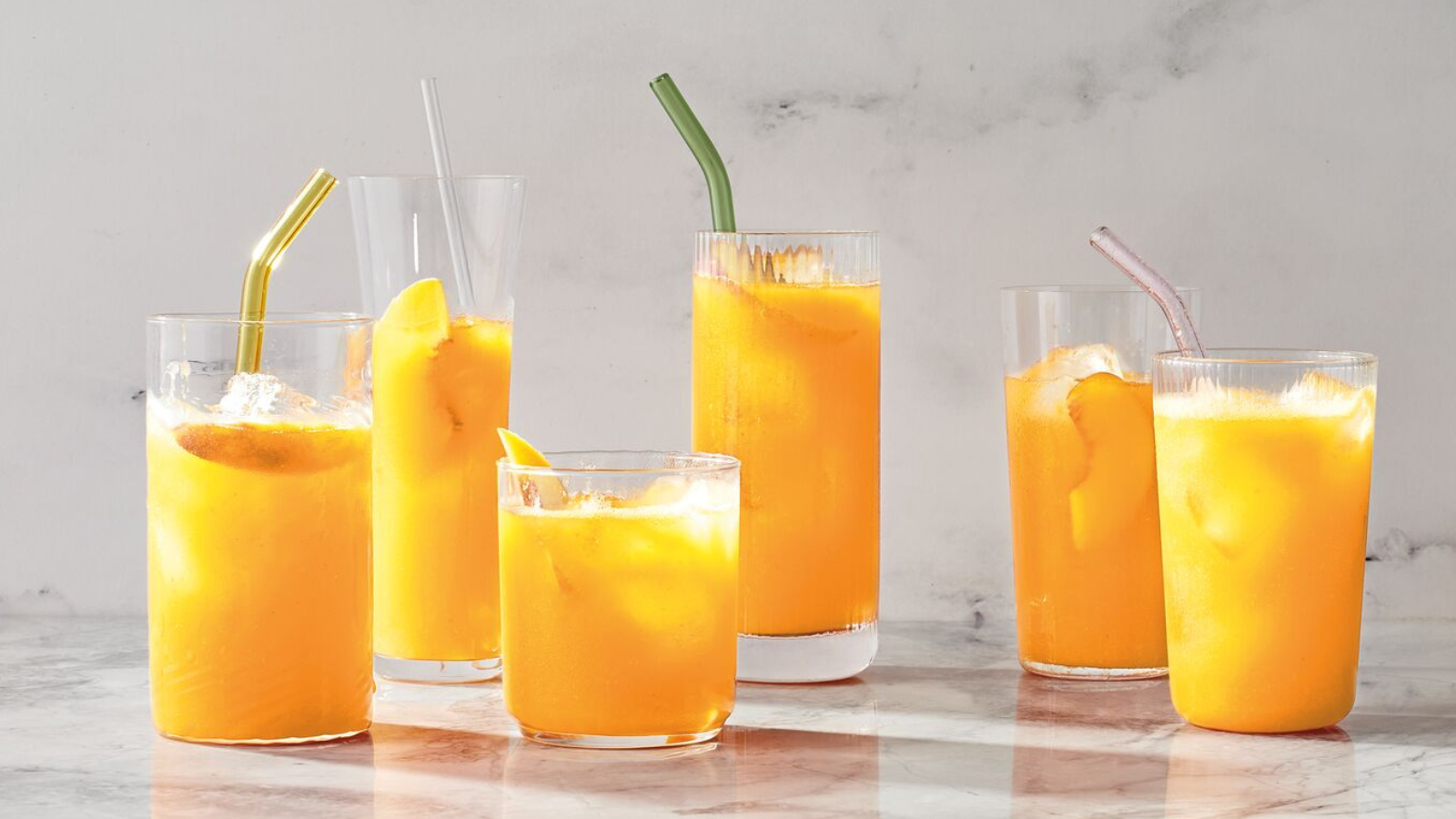The low down on liquid diets


Q&A on drinks
Q. For most members fruit is zero Points, so why do fruit juices usually have a much higher Points value?
A. We’ve made most fruit and veggies a ZeroPoint food because they’re a healthy choice and we’d prefer you to snack and bulk up meals with them, rather than less-healthy options. But that doesn’t mean they’re kilojoule free, and it’s a fact that juicing fruits and vegetables can contribute to high-sugar content, per serve. Example? To make one glass of orange juice you have to squeeze at least five oranges, and that’s a lot of sugar and energy being consumed in one glass. And because you’ve taken all the fibrous stuff out, this kind of juice doesn’t tend to fill you up, either. That’s why you have to count the Points value when you’re having a juice or a smoothie.
Q. I’ve heard that coffee is bad for you and that you should make the effort to limit your intake. Is this true?
A. Coffee is a popular start to the day and a go-to pick-me-up for many of us. But it’s been getting a bad wrap as being a substance that should be avoided, or at least minimised, due to the caffeine content. Caffeine is a natural plant substance that stimulates the brain and central nervous system, an effect that lasts up to six hours. Caffeine may also interfere with sleep quality and increase baseline stress and anxiety levels.
But rest assured coffee fans – research also suggests that caffeine may have healthy properties too, perhaps even helping to protect against diseases like Alzheimer’s and some forms of cancer. You just have to find the dose that’s right for you and your tolerance level. A healthy dose is classified as being between 80mg and 300mg per day for adults, equivalent to 1-3 cups of instant coffee. Caffeine doses within this range have been associated with increases in alertness, mood, efficiency and concentration.
Q. Should you avoid alcohol completely when you’re trying to lose weight?
A. It’s not just fat, carbohydrates and protein that contribute to your overall energy intake. In fact, alcohol contains more kilojoules per gram than protein or carbs. And it may also inhibit your body’s ability to burn fat. But that’s not to say you can’t enjoy the occasional drink or that if you do, you won’t lose weight.
It’s about making informed choices and tracking as you go. At WeightWatchers® we believe that on any weight-loss journey there still needs to be room for life – and that includes social situations or enjoying a drink at home after work. The decision about whether or not to drink is an individual one that comes down to three things: your Points Budget, how quickly you want to lose weight, and your health, because drinking too much alcohol can have a negative impact.
If you do decide to drink, make it worth the Points value with something you enjoy and limit your intake to one or two standard drinks on any one occasion.
Q. Is it okay to drink diet soft drinks on a daily basis?
A. When people talk about diet soft drinks, they often ask two questions: ‘Are artificial sweeteners unhealthy?’ and ‘If I consume them, will they help me lose weight?’
There is a growing body of evidence regarding the effect of artificial sweeteners on health. Studies show that they can modify how the body handles sugar and that, just like sugar-sweetened beverages, drinking too many artificially-sweetened ones may increase the risk of health problems like type 2 diabetes and heart disease.
Bottom line: diet soft drinks can be useful as an alternative to regular soft drinks, but you should take care to limit your intake, because there are downsides to drinking them on a daily basis, including the fact that the acid they contain can start to affect the enamel on your teeth.
